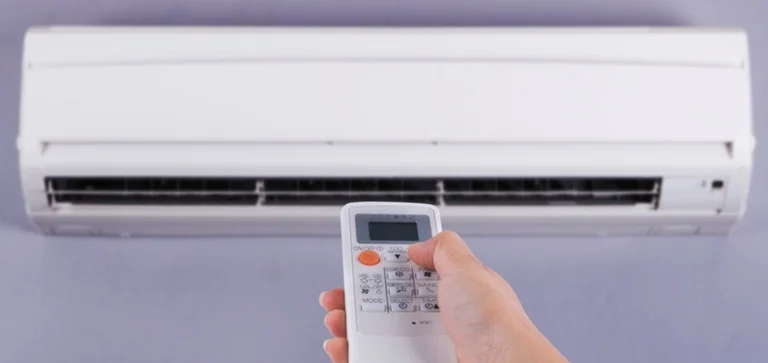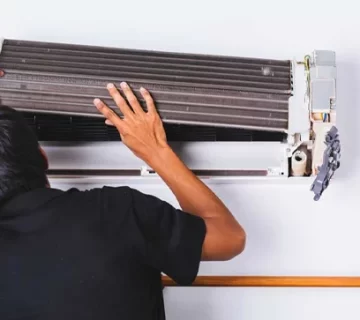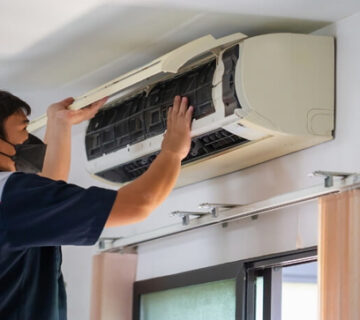Making the most of air conditioner is not only economically but also environmentally responsible in today’s world where energy conservation is essential. In many areas, severe heat waves are becoming increasingly common, so it’s essential to use energy-efficient techniques to keep our homes cool and pleasant. There are several useful strategies to increase the effectiveness of air conditioners, ranging from straightforward temperature settings modifications to routine maintenance and making use of natural airflow. By putting these strategies into practice, we can lower our energy usage and help ensure an environmentally friendly future for future generations.
Access to high-quality AC spare parts and specialised air conditioner tools is necessary for HVAC professionals and technicians to ensure the durability and maximum operation of air conditioning systems. For effective repairs and maintenance, having the appropriate parts on hand is essential for anything from compressors to condenser coils. Additionally, maintaining indoor air quality and avoiding particles and dirt buildup within the system depend on the regular replacement of important components like the AC air filter. Professionals can efficiently identify problems, carry out repairs, and maintain cooling systems operating smoothly, offering clients comfort and dependability, with the right AC spare parts and air conditioner tools.
Here are the top 9 tips to save energy with an air conditioner
1. Optimize Thermostat Settings
When you’re at home during the summer, turn the thermostat up to 78°F (25°C) or higher. You can reduce your cooling expenses by up to 3–5% for each degree that you raise the thermostat above 78°F. Use a programmable or smart temperature to ensure effective cooling when needed and energy conservation when you’re not home. These devices allow you to set temperatures based on your schedule.
2. Utilize Programmable Thermostats
With programmable thermostats, you can adjust the temperature in your house with freedom. They can be set up to automatically change the temperature during the day; for example, they can be set to rise while you’re sleeping or away from home and fall before you get back. This lowers the amount of energy used when cooling isn’t required.
3. Maintain Regular Air Conditioner Maintenance
Maintaining the efficiency of your air conditioner requires routine maintenance. To guarantee sufficient airflow and lessen system stress, clean or replace air filters every one to three months. Plan yearly expert maintenance as well to have the condenser and evaporator coils inspected and cleaned, the refrigerant levels checked, and any possible problems that might affect efficiency fixed.
4. Utilize Fans
By better spreading cool air around your house, ceiling fans and portable fans let you turn up the thermostat without sacrificing comfort. Utilise fans selectively to help with your cooling efforts as they use a lot less energy than air conditioning.
5. Seal Air Leaks
Your home’s ducts, windows, and doors may have gaps and cracks that let warm air enter and cool air escape, making your air conditioner work harder. Weather removing it, sealing, or insulation can be used to seal these leaks, increasing energy efficiency and reducing cooling expenses.
6. Utilize Natural Ventilation
In order to cool your home naturally, open your windows during the early morning and evening hours to take advantage of the lower outside temperatures. Without using air conditioning alone, cross-ventilation can help maintain nice indoor temperatures.
7. Use Window Coverings
To limit heat, consume and block out sunlight during the hottest portions of the day, close your blinds, covers, or shades. To reduce heat transfer through windows while maintaining the amount of natural light that enters your home, think about making an investment in solar shades or reflective window treatments.
8. Avoid Heat-Generating Appliances
When appliances like stoves, ovens, and dryers are in use, they produce heat that raises the temperature in your house and makes your air conditioner work harder. When possible, stay away from using these appliances during the hottest parts of the day and instead use more energy-efficient options like air drying clothes and cooking in the microwave.
9. Consider Energy-Efficient Upgrades
Select an air conditioner with an Energy Star certification and a high Seasonal Energy Efficiency Ratio (SEER) rating when it’s time to replace your old one. Over time, these units will result in cheaper energy bills and a less environmental effect because they are made to use less energy while maintaining the same degree of comfort cooling. Upgrade your home’s insulation to further improve energy efficiency and lower cooling requirements.
Conclusion
Big step towards sustainable living is using air conditioners in energy-efficient manner. May limit our environmental impact and get benefits of lower energy costs by implementing above recommendations into everyday activities. Reducing load on electrical lines during periods of high demand, efforts help strengthen durability of our energy infrastructure. We have ability to make major changes in our energy-consuming behaviours, and we adopt tactics as group, we can considerably contribute to protecting environment for coming generations.



